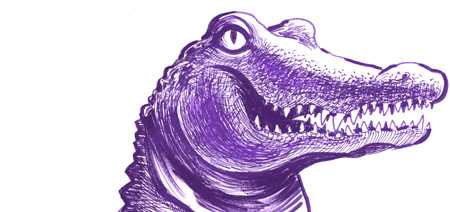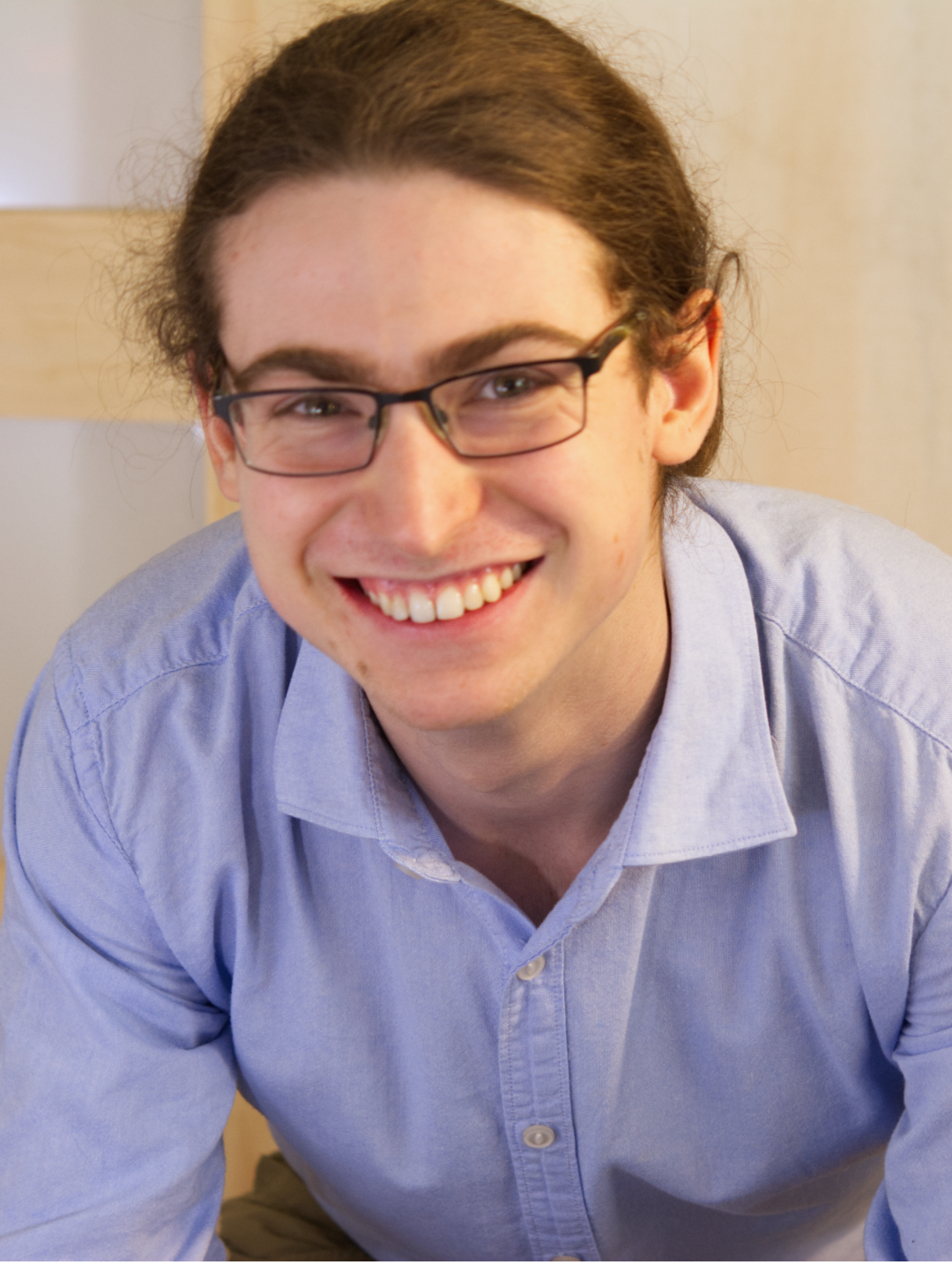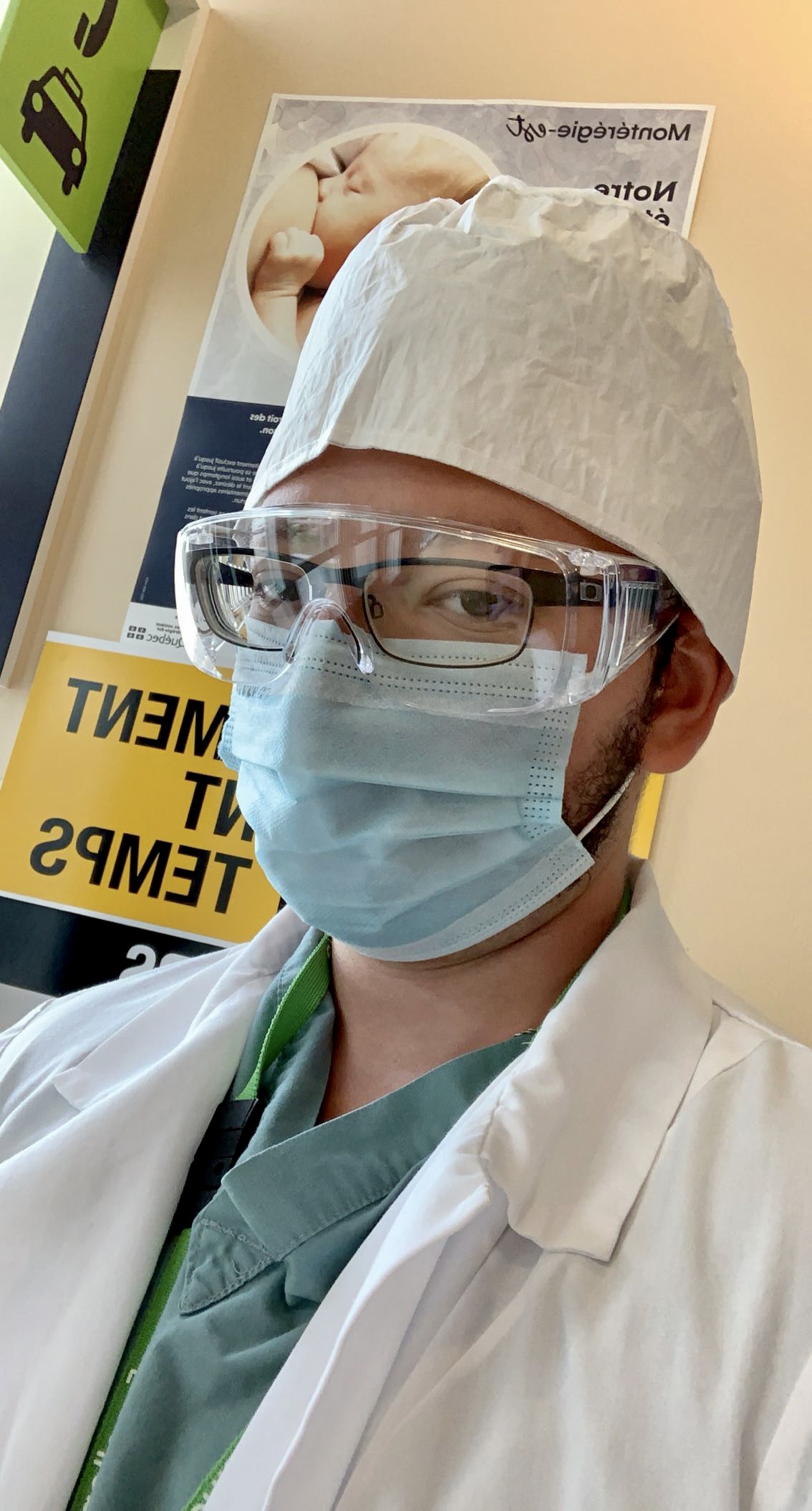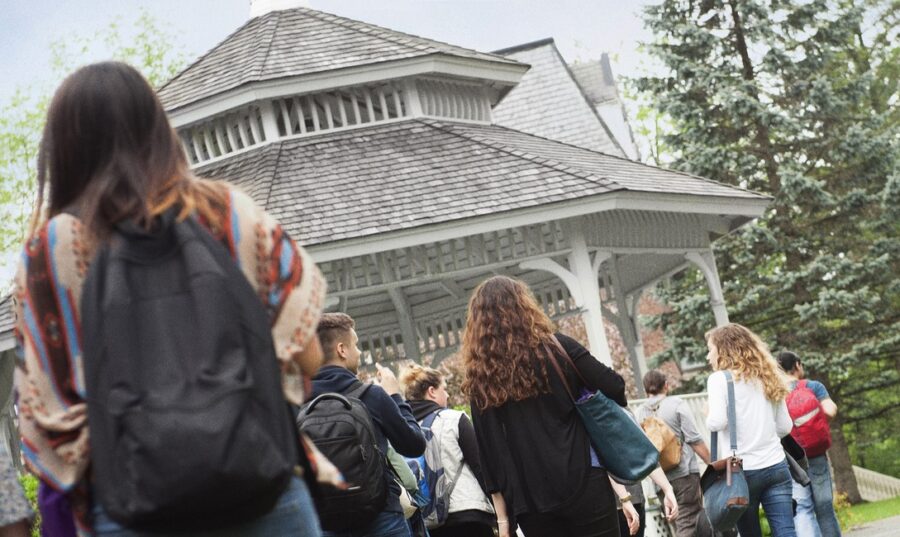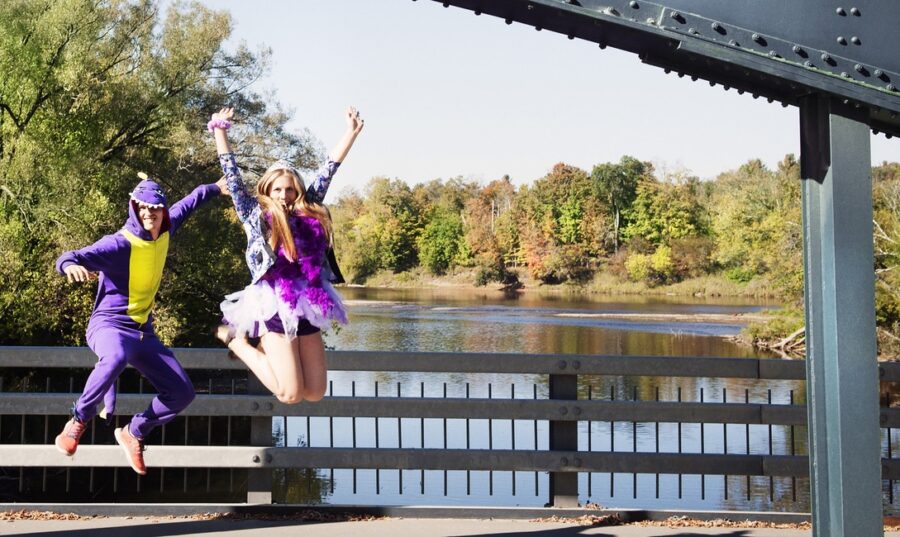The B.E.S.T. Project Fund is the premiere experiential learning opportunity at Bishop’s. This unique fund is intended to assist students to determine their career paths and realize their ambitions. Every year, students are awarded the B.E.S.T. fund to pursue a project or internship that will help them gain perspective on their future careers. Read what some of the 2021 recipients have to say about their projects in our feature below.
Teamwork in ER – Aidan MacDonald
Aidan MacDonald (he/him) was granted a B.E.S.T Project Fund to pursue an internship program at St. Michael’s Hospital in Toronto. Aidan worked with two med students researching T-NOTECHS, or Trauma Non-Technical Skills Tools through the Keenan Summer Research Students program. The program hosts undergraduate med students to work on a research project.
“T-NOTECHS is an assessment tool for non-technical skills in a trauma setting that scores how well medical staff are working as a team during a trauma situation. It assesses leadership, collaboration, communication, and other non-technical skills. The project I was working on is a critical appraisal of this tool, asking questions such as if it’s good and valuable. I looked through the literature that exists on T-NOTECHS to extract data from the articles I was sent. One of the students I was working for has sent the manuscript off to be published, and I’m credited as a co-author on it.”
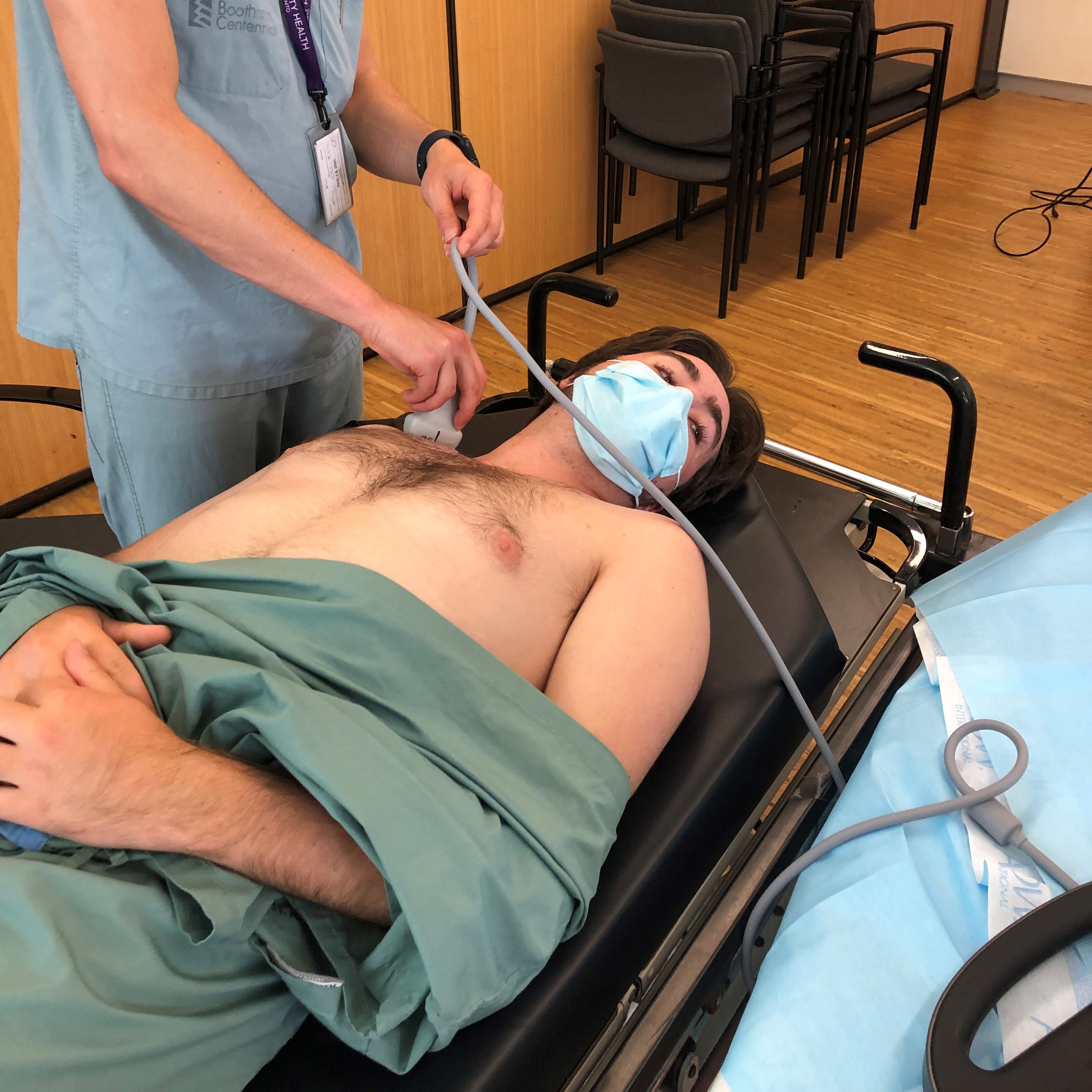
“I had heard about these kinds of programs for undergrads and med students, and wanted to get some experience in research and the medical field in general. This internship was a good chance to do both.” As a fourth-year Health Sciences and Biology student, Aidan wants to work in emergency medicine and pursue medical school after Bishop’s. “Who knows what I’ll find interesting in med school. I’m interested in the research side but also want to work in a hospital and a clinic.”
“I had heard about these kinds of programs for undergrads and med students, and wanted to get some experience in research and the medical field in general. This internship was a good chance to do both.” As a fourth-year Health Sciences and Biology student, Aidan wants to work in emergency medicine and pursue medical school after Bishop’s. “Who knows what I’ll find interesting in med school. I’m interested in the research side but also want to work in a hospital and a clinic.”
“The B.E.S.T Fund allowed me to focus on this unpaid position and not have to worry about my expenses. I’ve been into medicine my whole undergrad degree, but I was assured of it this summer. I went in-person for a skills day at the hospital and just being there assured me that this is what I want to do.”
Recycling on campus – Donovan Faraoni
Donovan Faraoni (he/him) is a second-year Biology and Political Studies student. Last year, he was granted a B.E.S.T. Fund to do a Feasibility Study on his plan to recycle common sources of plastic into useful objects at Bishop’s.
“Really, the main purpose of it is to take plastic waste from common sources such as shampoo bottles … shredding it, and then remelting it and then molding it into new items that are high quality and useful. Essentially keeping them out of landfills and the environment … And there is an awareness-raising component of it, of course, that is built into the activities.” The initial scope of the project is to launch it just within the Bishop’s Community, with the possibility of expanding it at some point.
The smaller scale was important for Donovan, who adds that it “is a key feature of [the project], because it enables the impact to be tailored to the Bishop’s University community overall.”
“It offers a concrete way to, on one hand, raise awareness through the sale of what are actually really nice and quite unique products. And, on the other hand, it offers a way to divert some of the plastic waste streams from the university back into new products. So, more of a circular economy approach.”
When asked how he came up with the idea, Donovan explains that he was involved in a similar initiative at his previous school. “It was actually dealing with marine plastic waste because it was it was in BC.” With that idea in mind, and the freely available resources that the organization Precious Plastics offers online, he created the idea of a Precious Plastics group at Bishop’s University.
Donovan plans to go into Science Policy, specifically looking at the environmental side of the field. In doing this project, he shares that he gained valuable hands-on experience, like “balancing multiple, sometimes contradictory, views of stakeholders in coming up with a viable solution that can be implemented in a way that is actually going to be feasible and meaningful. It also helped me make connections with multiple people at different multiple people throughout the university structure at multiple different levels, which I think is a valuable thing.” Those connections, he adds, are “certainly beneficial in terms of gaining greater awareness of what the possibilities are within the university context.”
Interning and research in the health care system – Sherif Youssef
Third-year student Sherif Youssef (he/him) is currently finishing his degree in Neuroscience. For his B.E.S.T. project, he spent the summer interning at a hospital in Sorel-Tracy, Quebec, where he spent almost two months and a half shadowing a psychiatrist.
“The goal of the project was two-fold,” he shares, “The first was to get to know what a psychiatrist does … I wanted to familiarize myself with the routine, the daily challenges, the sort of day-to-day interactions that they have. And I also had a social study component, where I was interviewing psychiatrists in the department to see, according to their perspective, what the position of minorities within the medical system are … They talked to me a lot about what the differences that come with treating minorities are: what sort of precautions you have to take, how to formulate your questions to make them more comfortable in the environment… I got their opinions on the medical system in general and specific cases.”
Already impassioned about helping people, Sherif wanted his last year of university to offer him a full-rounded experience. “With my supervisor, Jasmeen Sidhu, we came up with this idea to, with the B.E.S.T. study, see the position of minorities from the doctors’ point of view, and then with my Honours this year, I’m studying the position of minorities from their own perspective … I’m trying to compare and contrast the two points of view.”
“At the beginning, you know that there is a problem with the position of minorities within the medical system: you hear stories, you hear that minorities are discriminated against. I myself am a minority… You hear stories but you never either really live them yourself or they never affect you personally. Once you go in, you see that it’s a deeply rooted problem … We’ve only scratched the surface.”
The project also helped him better understand the path he is choosing. “Applying to grad school is very stressful … The internship really helped because I discovered that, although clinical psychologists are amazing, and they do a very important job, they are limited in their treatments; they are only limited to talk therapy, experimental therapy; they do not give medication, do not perform ECTs, etc. Psychiatrists on the other hand have way more freedom and they really get the chance to connect with patients. It’s a beautiful experience.”
Hannah McLean
Fourth-year Sociology and Pre-Law student Hannah McLean (she/her) used her B.E.S.T. Fund to participate in a remote internship at a Venezuelan NGO.
“I was hoping to gain more experience closer to the legal field and human rights, specifically, because that’s the area of law that I want to practice … So when I researched internships, I ended up finding this larger NGO that focuses on human rights around the world. It actually works with the UN too, which is pretty cool … It’s called Liga Española Pro-Derechos Humanos.” Through them, she then decided to do a placement with an NGO in Venezuela called Solidaridad Venezuela.
Hannah explains that we have some blind spots to the situation in other countries, including in South America. “I’ve grasped the scope of it, or looked at it in economics and stuff, but, especially -I’m going to stress this like a bajillion times- I think that what the pandemic has done to some of these other countries is horrifying beyond what they’re willing to show on the news. And that was really, really, revealed to me in my research, but there’s a lot of social issues and stuff that I have completely overlooked that have been occurring in South America.”
For her, the internship was “enlightening.” “Because I think that the way that public policy and our legal system is set up, we don’t really help refugees as much as we should. And there are a lot of really suffering countries, and that was really exacerbated by COVID-19. And so it was really eye-opening to me, like part of my research was near the end was reaching out to other Spanish Canadian NGOs, for collaboration … and I only got a response from like, one.”
“It says a lot about, like, the type of work that I want to do, though, like I realized that it would be very difficult because you are encountering people who like really need help, but like, there’s also kind of like this uncaring world, you know, and on top of that, we have all of these other countries who are coping with COVID-19 and can barely handle that domestically so are naturally not as generous when dealing with countries that are kind of on the margins.”
Overall, she reflects that the internship taught her to seek variety and eye-opening experiences. “I was working with people who were from a different country, who spoke a different language than me. And so that was adjustment in itself. And then obviously, working with people who are extremely marginalized, you know, who do not have the same access to health care that we have, or PPE, or nearly the same amount of social programs and stuff … It really solidified that I do want to continue working towards making the world a better place.” Hannah plans to continue her studies to law school, with the goal of eventually working in Human Rights Law, specifically Indigenous Law in Canada.
The application period for this year’s B.E.S.T. projects is open until January 28, 2022!
For more information on the B.E.S.T. Project Fund and to apply, visit the page on our website: https://www.ubishops.ca/future-current-students/money-matters/scholarships-awards-bursaries/b-e-s-t-project-fund/

